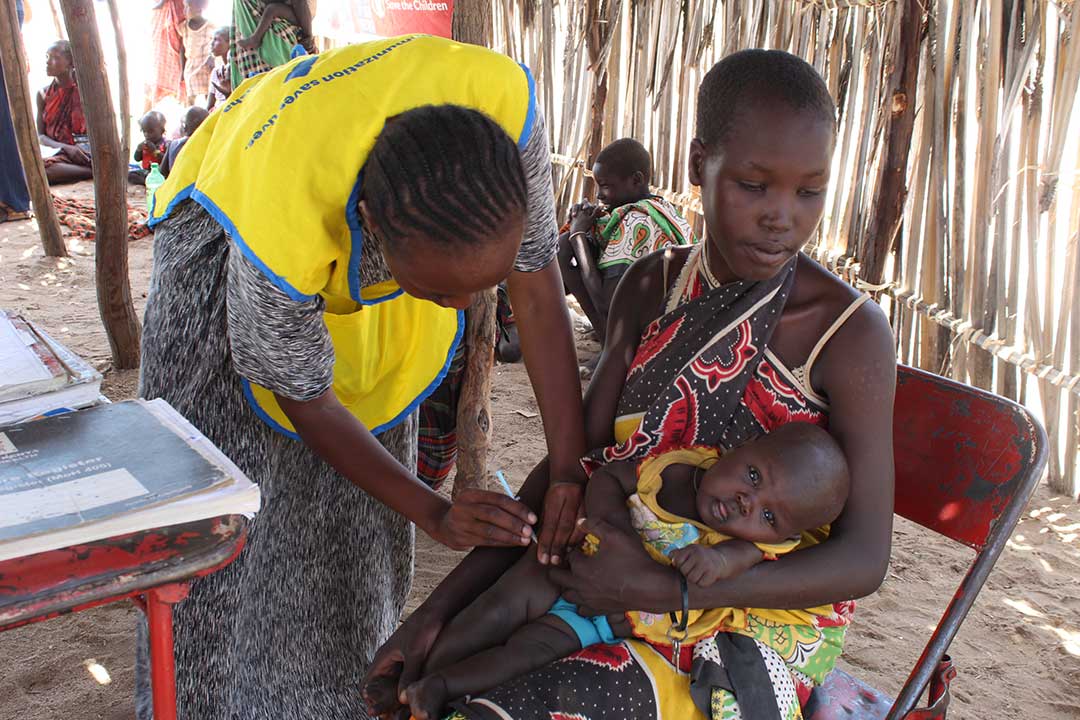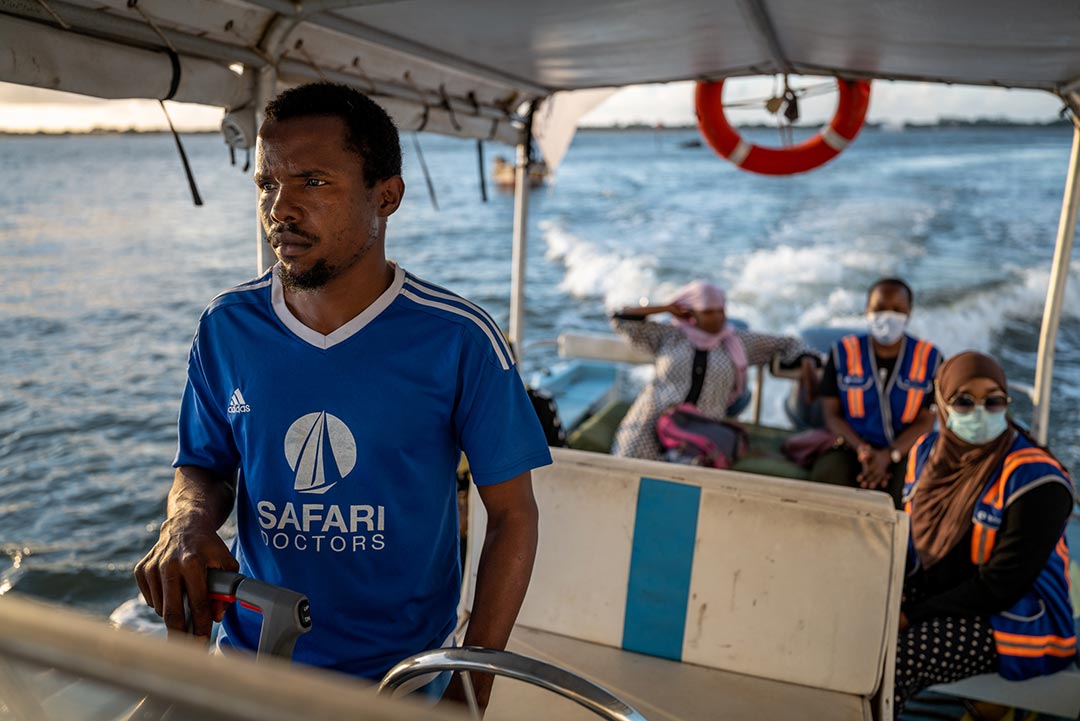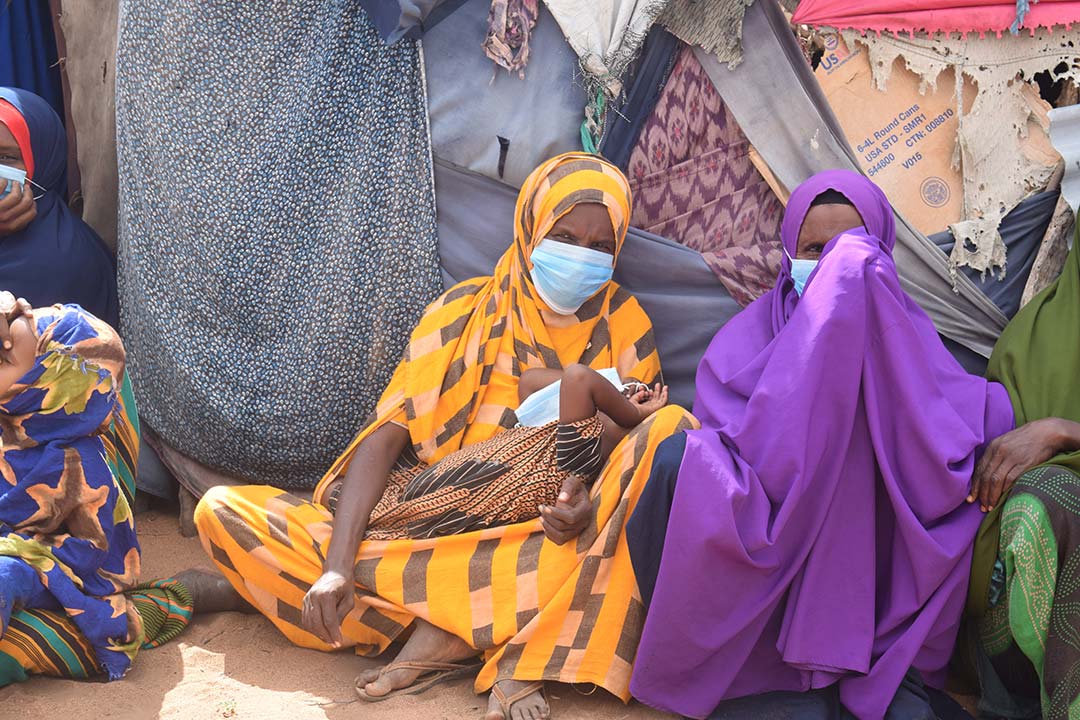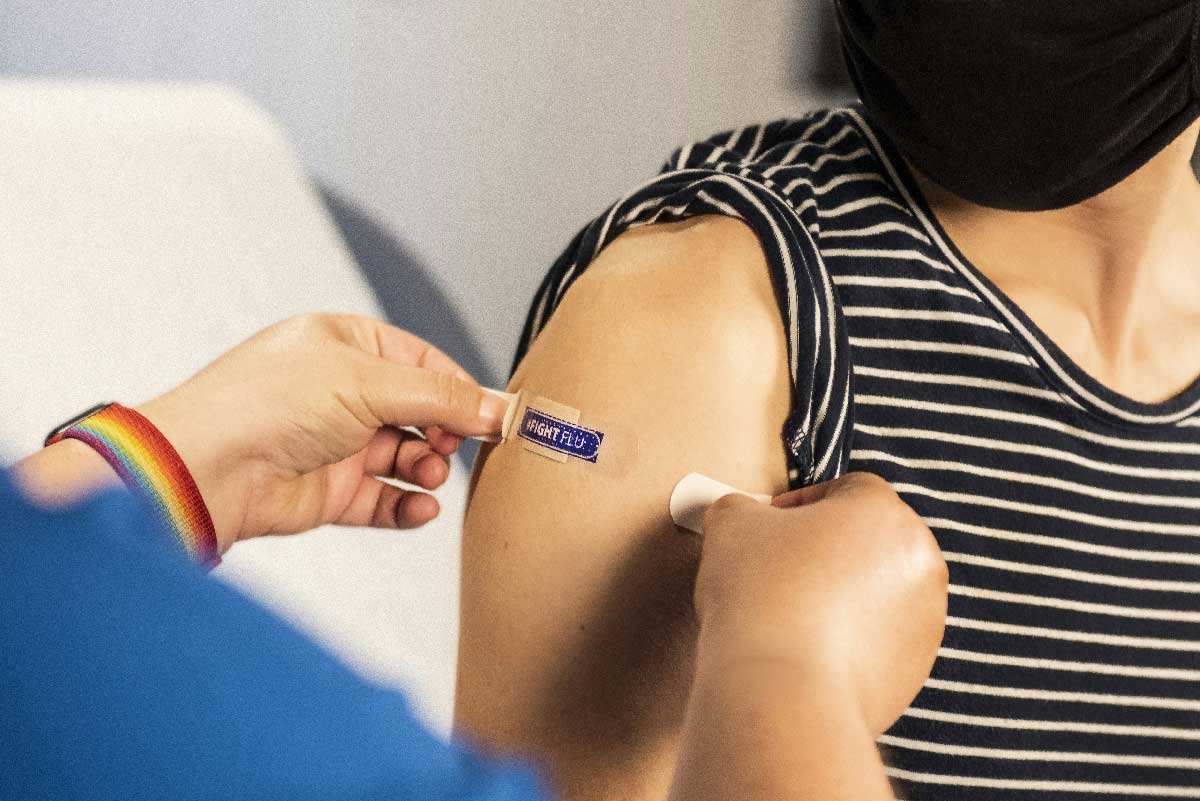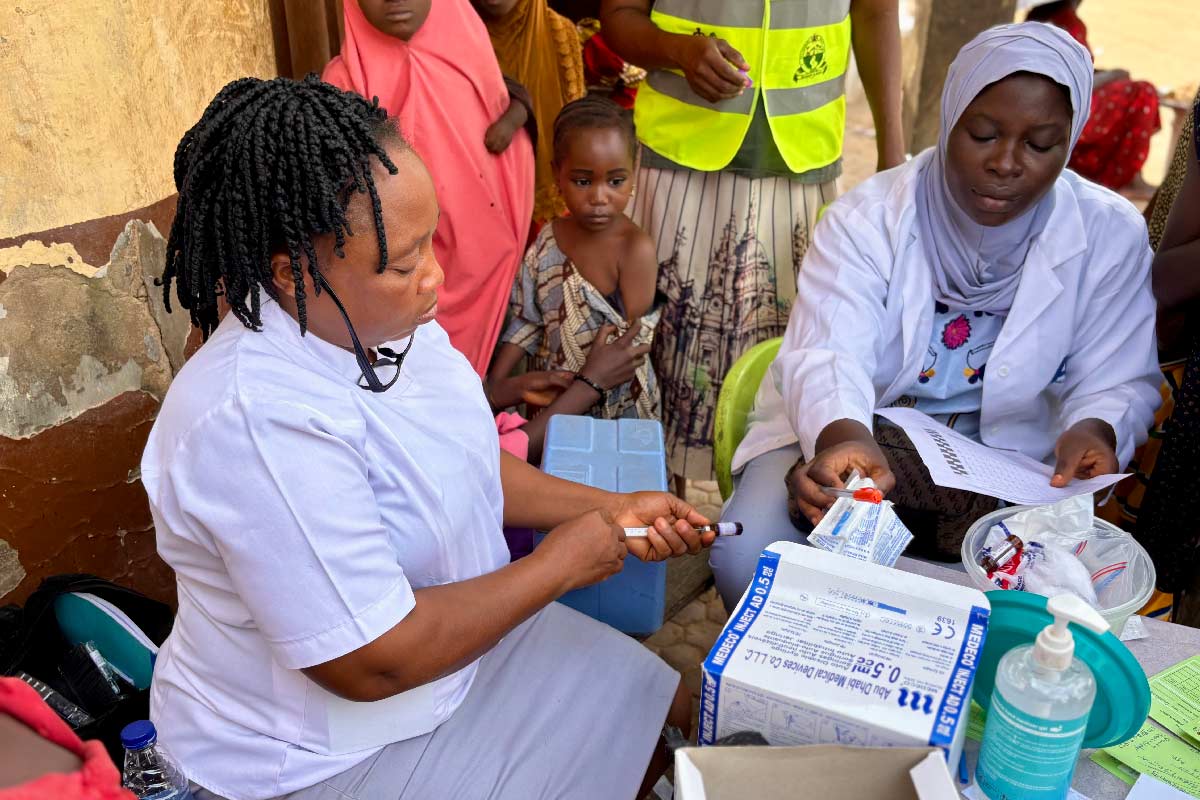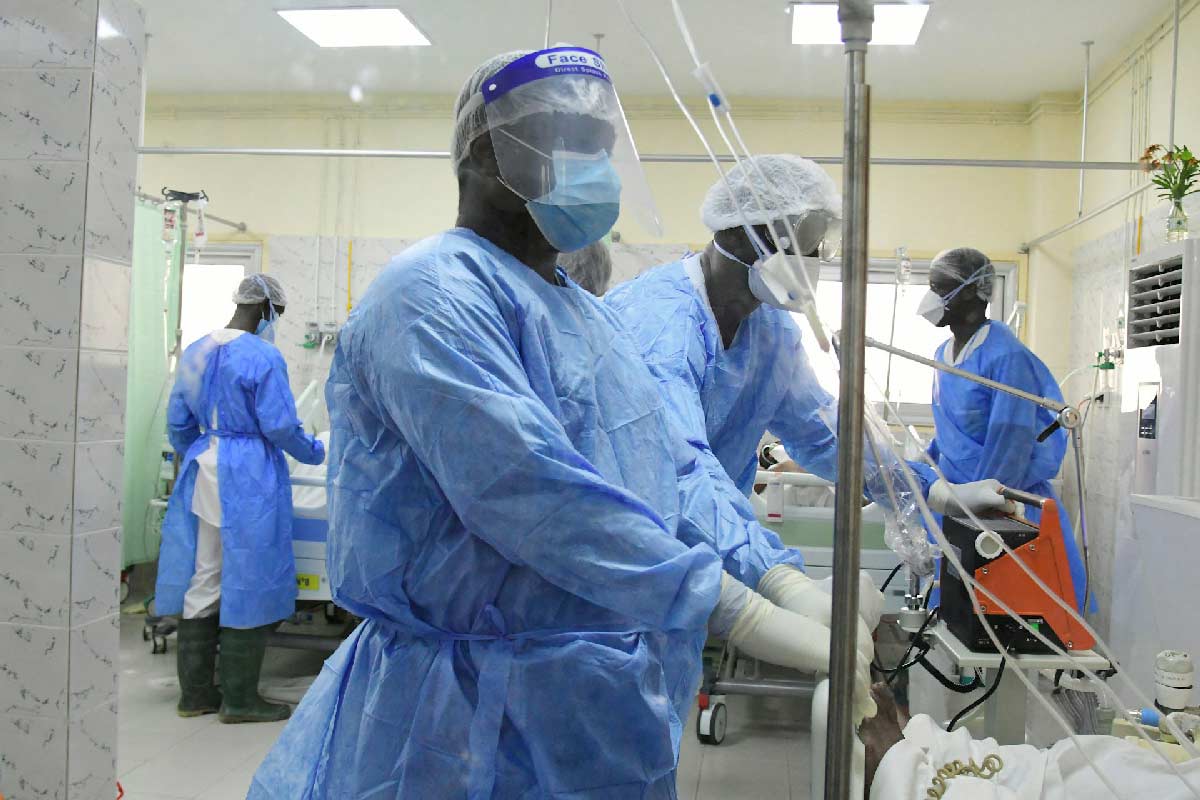Women on the frontline: delivering COVID-19 vaccines on the Kenya-Somalia border
Al-Shabaab has forced the shutdown of health facilities close to the Somalia border in Northern Kenya. A group of women activists are fighting back, ensuring COVID-19 vaccines reach the most vulnerable.
- 16 April 2021
- 5 min read
- by Abjata Khalif

For an area that has its unfair share of problems, the COVID-19 pandemic could only worsen the situation in Kenya’s northern region, which borders Somalia. Plagued by a hostile climate and poor security, life for the majority is tough. Much-needed services are scarce among the pastoralist communities living here.
Aware that COVID-19 had the potential to exacerbate the already-dire conditions in these remote villages, a group of women activists decided to act. These women are now educating the pastoralist communities in this dry and desolate border region on the importance of COVID-19 vaccination and urging them to go for the jab.
The women also embarked on a house-to-house campaign in the remote areas, engaging women, young people and the elderly. By engaging the elders, they managed to rope in the influential traditional leaders who become critical in the mass vaccination campaign.
There is bustling informal trade on both sides of the Kenya-Somalia border with traders moving freely both ways to buy and sell. The unchecked border crossings and easy movements has facilitated the spread of COVID-19.
“All hospitals and dispensaries on the Kenyan side of the border are closed as a result of Al-Shabaab threats,” says Halima Adan, the leader of the women’s group. “So we are trying to address the consequences of this collapse in the health system as well as Al-Shabaab’s attempts to derail Kenya’s efforts to combat COVID-19 through the spread of misinformation, including the linking of pork to the vaccine to scare Muslims.’’
Al-Shabaab has been taking advantage of the poor health infrastructure, high levels of illiteracy and insecurity to incite locals against the frontline workers.
Before the health facilities were closed down, each urban centre was served by one health centre which, as it was, could hardly cater to the health needs of the large population. In addition, patients from far-flung villages find it difficult to access services because of poor roads, widespread insecurity and the hostile climate, which is being made worse by climate change.
On 3 March the Kenyan government received just over a million doses from of its 3.56 million allocation of the Oxford-AstraZeneca vaccine through the COVAX initiative, bringing hope to the troubled region.
“The arrival of the vaccines has been a big boost to our campaign on mass vaccination. It has reenergised us as we fight the messaging from Al-Shabaab,” says Kheyra Ali, a women right’s activist.
One of the mobilisers, Naima Abdi, adds, “We devised strategies including giving radio interviews, doing village visits, speaking at public forums during market days and speaking to key traditional leaders to counter this messaging.”
Have you read?
‘’Radio is the best tool. We gathered information and expert views on COVID-19 from international radio stations broadcasting in Somali language” says Dubey Bishar, a member of the group.
The radio programmes are produced and aired by the Kenya Pastoralist Journalists Network, a local non-profit community-based media organisation operating in the arid north of the country.
The women also embarked on a house-to-house campaign in the remote areas, engaging women, young people and the elderly. By engaging the elders, they managed to rope in the influential traditional leaders who become critical in the mass vaccination campaign.
‘’Despite threats posed by Al-Shabaab agents, we went from house to house and village to village and shared the Covid-19 vaccine facts we collected from our past radio listening sessions,” says Batula Dahir, a member of the women’s group.
Engaging elders was a master stroke. As the custodians of cultural institutions, their blessings were critical to efforts to promote community COVID-19 vaccine acceptance. The region subscribes to conservative cultural beliefs and traditions preserved, dictated and dispensed by traditional cultural institutions.
This working formula between the two groups resulted in the communication of large volumes of news, information and expert analysis on the vaccine to the community and convinced communities to accept the mass vaccination centres.
“We won the trust of traditional leaders which paved the way for the community to convert facilities that had been abandoned due to insecurity to mass vaccination work,” says Anab Shukri.
They have mapped out 20 facilities capable of offering vaccination to 3,000 people a month. Of these, 10 facilities have opened so far: “a great achievement” as Anab describes it.
Kenyan authorities have released a list of health facilities and centres allowed by the health ministry to administer the COVAX-procured Oxford-AstraZeneca vaccine. Garissa County has twelve approved centres. Nine are in semi-urban towns and three are in Dadaab refugee camp, that hosts refugees from Somalia, Ethiopia and South Sudan.
“The collaboration between the women activists and traditional leaders that turned closed health facilities into mass vaccination hubs will complement the Kenyan government’s efforts to increase the number of facilities that offer the vaccination,” says Adan Garad, the Executive Director of Wagalla Centre for Peace and Human Rights.
The women’s group also works with security agencies and health authorities to assess the facilities, make security arrangements and recruit health workers to administer the jab in these insecure border outposts.
“We face threats for rolling back Al-Shabaab’s activities but we have won the hearts of members of the community and the key constituency of traditional leaders who have influence on all issues affecting the border areas,” says a confident Usuba Ahmed.
Members of Al-Shabaab fear the traditional leaders and this has worked to the advantage of the women’s campaign. Now, the women campaigners hope to go even further: “Our next plan is to engage the traditional cultural institutions in rolling out mobile vaccination hubs which will reach an estimated 20,000 people living in pasture and water zones,” says Halima Adan.

